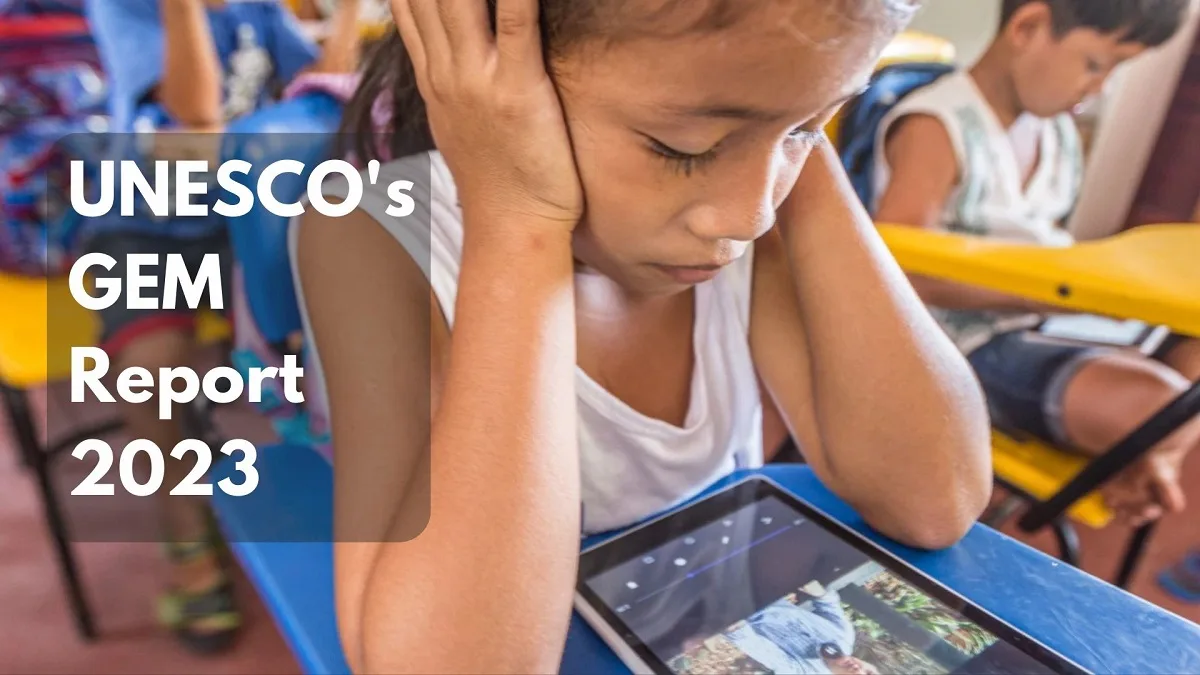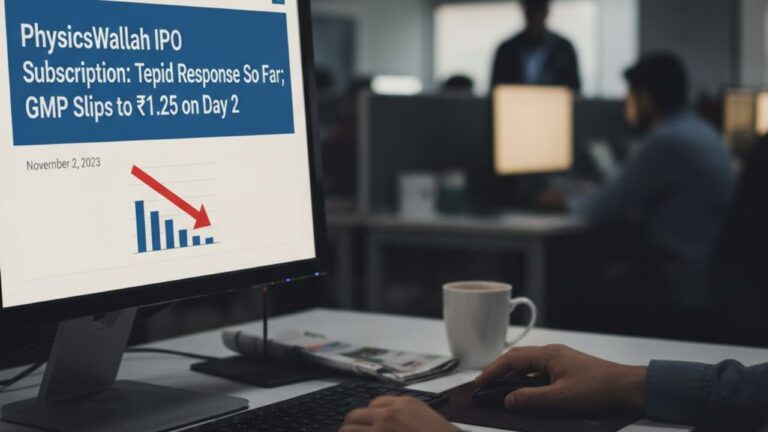
Balancing the Digital Future: UNESCO's Global Education Monitoring Report 2023 (Pic Credit: UNESCO)
The United Nations Educational, Scientific, and Cultural Organization (UNESCO) has recently released its Global Education Monitoring Report for 2023, titled ‘Technology in Education: A Tool on Whose Terms.’ This comprehensive report highlights crucial issues surrounding the integration of technology in education. It delves into the impact of smartphones in schools, the inequity in technology access during the COVID-19 pandemic, the limited adaptation of digital technology, data privacy concerns, and the consideration of costs. The report provides essential insights and recommendations to shape a balanced digital future in education.
Table of Contents
The Rationale for Restricting Smartphone Usage
One of the key highlights of the report is the endorsement of a ban on smartphones in schools under specific circumstances. The report emphasizes that the mere proximity of mobile devices can distract students and negatively impact learning in several countries. Surprisingly, less than one in four countries has implemented a ban on smartphone use in schools, despite evidence pointing to its detrimental effects.
Research has shown that higher screen time among young people aged 2 to 17 years is associated with poorer well-being, decreased curiosity, self-control, and emotional stability, as well as higher levels of anxiety and depression. Banning mobile phones from schools has been found to improve academic performance, especially for low-performing students. These findings highlight the importance of striking a balance between technology integration and learning outcomes in educational settings.
Inequity in Access During the COVID-19 Pandemic
The report sheds light on the challenges faced during the COVID-19 pandemic when education rapidly shifted to online platforms. This transition left out at least half a billion students worldwide, with the poorest and those in rural areas being disproportionately affected due to limited access to digital technology. The pandemic exposed the digital divide, where many students lacked the necessary tools and connectivity to engage effectively in remote learning.
Limited Adaptation of Digital Technology
Technological advancements are occurring at a fast pace, which puts pressure on education systems to adapt quickly. To maximize the potential benefits of technology in education, digital literacy and critical thinking skills are crucial, particularly with the growth of generative artificial intelligence (AI). However, the report indicates that adaptation efforts are still in progress, with only a limited number of countries having defined skills and curricula for AI.
Data Privacy Concerns
The indiscriminate use of digital technology in education has raised concerns about children’s data privacy. Shockingly, only 16% of countries explicitly guarantee data privacy in education by law. The report reveals that a significant number of education technology products recommended during the pandemic could survey children, potentially exposing their data without proper safeguards.
Further, the report highlights that some governments providing online education during the pandemic fostered uses that risked or infringed on children’s rights. This emphasizes the need for child data protection laws and accountability mechanisms tailored to children’s needs.
Consideration of Costs
The report calls attention to the long-term financial implications of technology purchases in education. In many cases, technology is acquired to address immediate needs without considering the future costs for national budgets. For low-income countries, moving towards basic digital learning and connecting all schools to the Internet in lower-middle-income countries would substantially add to their current financing gap for achieving national Sustainable Development Goal 4 targets.
UNESCO’s Recommendations
To address the challenges and concerns outlined in the report, UNESCO offers several critical recommendations for policymakers and education stakeholders:
- Evidence-Based Decision-Making: Policymakers must base their technology integration decisions on rigorous and impartial evidence of technology’s effectiveness in learning. Reliable research will enable informed choices regarding the use of technology in education.
- Technology as an Enabler: Technology should be viewed as a tool to enhance learning experiences and support the well-being of both students and teachers. It should complement, not replace, in-person, teacher-led instruction.
- Bridging the Digital Divide: The right to education is increasingly linked to meaningful connectivity. UNESCO urges setting benchmarks to connect all schools to the Internet by 2030, with a particular focus on reaching marginalized communities to bridge the digital divide.
- Long-Term Cost Considerations: Policymakers must carefully assess the long-term financial implications of technology purchases. A sustainable approach is required to ensure that technology adoption does not exacerbate existing educational inequalities.
Conclusion
The Global Education Monitoring Report 2023 by UNESCO emphasizes the need for a balanced approach to integrating technology in education. While technology offers immense potential benefits, it must be implemented with care and consideration of its impact on learning outcomes and student well-being. By adopting evidence-based policies, safeguarding data privacy, addressing access inequities, and accounting for long-term costs, we can shape a digital future that truly enhances education for all. Policymakers, educators, and stakeholders must collaborate to build a more inclusive, equitable, and effective educational system for the generations to come.
Click to Know: UNESCO






